Our Contributors
-

John Arroyo
John C. Arroyo, Ph.D., AICP, is an Assistant Professor in Engaging Diverse Communities and Director of the PNW Just Futures Institute for Racial and Climate Justice at the University of Oregon. At UO he is affiliated with the School of Planning, Public Policy and Management; Indigenous, Race, and Ethnic Studies department, Latinx Studies Minor, and the Historic Preservation program. Arroyo’s research focuses on the political and cultural dimensions of immigrant-centered built environments in emerging gateways. He was an Andrew W. Mellon Foundation Fellow in Latino Studies at the School for Advanced Research in Santa Fe, New Mexico. He received a doctorate in Urban Planning, Policy, and Design from MIT. His civic service includes serving on the boards of UO’s Center for Latino and Latin American Studies (CLLAS), the Public Humanities Network of the Consortium for Humanities Centers and Institutes (CHCI), and the School for Advanced Research (SAR).
-
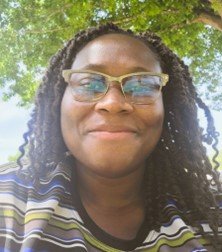
Sharon Attipoe-Dorcoo
Sharon Attipoe-Dorcoo, Ph.D., MPH, Principal of TERSHA LLC, is first and foremost grounded in her cultural identity as a Ghanaian-American and embraces her other intersectional facets of being a wife and mom in her work. She is a former board member of AcademyHealth, a member of the Education Council, author of a children’s book, poet, and consultant. As a community scholar-activist, she found her path from engineering into public health and her work involves engaging national mobile clinic programs. The vision for her work is rooted in culturally responsive and equitable tools for co-designing research and evaluation initiatives with communities. As a speaker, and facilitator.
-

Sarah Barns
Dr Sarah Barns is a researcher and urban digital strategist in the area of city data strategy, smart cities and digital storytelling. Her work over the past decade has taken place at the intersection of urban transformation, place-making and digital disruption. How technology innovation shapes our cities — our places, our infrastructures and our built and cultural fabric — has been a long term preoccupation. From 2013 Sarah has held an Urban Studies Foundation Postdoctoral Research Fellowship at Western Sydney University where she developed an international research program addressing the rise of the data economy as a major game-changer for cities and policy makers. This work has informed a set of strategy and consultancy projects with organisations such as Data61/CSIRO, the NSW Department of Planning and Environment, the NYU Centre for Urban Science and Progress and the ABC to facilitate data discovery and governance strategies underpinning smart city policies and digital engagement opportunities. Sarah's work today builds on her early career in innovation policy and program development for organisations spanning the ABC, Arup, the Australia Council for the Arts, and the Creative Industries Innovation Centre.
-

Zohreh BayatRizi
Dr Zohreh BayatRizi is an associate professor in Sociology at the University of Alberta. Her main interests are history of sociology and the sociology of death and grief. She is the author of Death Sentences: The Modern Ordering of Mortality, as well as several recent articles that aim to offer a decolonized, transnational perspective on death and grief.
-

Katie Beinart
Dr Katy Beinart is an Artist and Senior Lecturer in Architecture, University of Brighton. Her art practice, which emerged from a background in architecture and community work, includes installation, sculpture, film, performance and socially engaged projects. She has exhibited internationally and created temporary and permanent artworks on sites around the UK. Her current research project, Acts of Transfer, (with Dr Lizzie Lloyd) explores the spaces and subjectivities of socially engaged practice through making alternative documents and texts in collaboration with artists. Recent publications include: Don’t Look Back: The Challenges of Public Art and Meanings of Authenticity in Heritage Contexts, Public Art Dialogue, 2020, Vol 10, No. 2 and Khlebosolny/Bread and Salt: a time-travelling journey to Eastern Europe (and back), Mobile Culture Studies 4 (2019).
-
Katy Boone
Katie Boone is a social innovator who understands what it means to leverage potential, seeing the gaps between what is and what could be and building community through shared work to find and develop new ways forward. She believes in praxis, applying both theory and practice to the work she does. Her roots are in community building and designing collaborative and transformative systems change. Currently she is working on her PhD in Organizational Leadership and Policy Development - Evaluation Studies at the University of Minnesota, working from her values and passion that are rooted in equity, story, place and community. She works as a Qualitative Researcher and Community Engagement Coordinator for the Minnesota Department of Human Services.
-
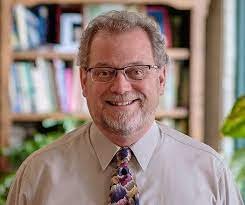
Tom Borrup
Tom is an international consultant, speaker, and lecturer addressing cultural planning, creative economy, and cultural district planning. As founder of Creative Community Builders, he consults with cities, foundations, and nonprofits to develop synergy between arts, economic development, urban planning and design. His 2006 book, The Creative Community Builders’ Handbook, remains a leading text in the field, and his 2020 book, The Power of Culture in City Planning, was published in 2020 (Routledge). Tom serves as Director of Graduate Studies and Senior Lecturer for the University of Minnesota’s Master of Professional Studies in Arts and Cultural Leadership. He is also a Visiting Professor at the University of International Business and Economics in Beijing, China and teaches for the University of Kentucky’s PhD Program in Arts Administration and the Creative Placemaking Certificate Program at Purdue University.
-

Urmi Buragohain
Born in Northeast India in the mid-70s, Urmi spent her formative years in this conflict-prone region where violence and trauma were a way of life. After getting her degrees in Architecture and Urban Planning, she, along with her husband, migrated to Australia in 2003 where she worked in the local government sector for over a decade. During her career in Victoria, Australia, she got involved in a range of projects at the nexus between urban planning, sustainability and water that challenged her problem-solving abilities and earned her industry and peer recognition. Her first exposure to placemaking also happened there which opened up a whole world of possibilities of putting people at the forefront of any urban intervention. Over the years, she became part of the global placemaking family, and that connection has continued to grow with her currently spearheading the placemaking movement in Northeast India.
-

Michael Cohen
Michael Cohen is the director of City People, an Australian organisation committed to strategising, planning and implementing arts and cultural programs that build stronger communities and better places. City People's projects include the Circular Quay redevelopment cultural framework, an arts strategy and arts and cultural accelerator for Western Sydney Parklands, and arts in health programs for diverse NSW Health infrastructure programs. Previously, Michael was Creative Producer, Sydney Harbour Foreshore Authority, Co‐Artistic Director of Theatre Kantanka (1996-2006), Co‐Director of Sydney's fringe festival, Live Bait (Bondi Pavilion 2004), Programme Director of Newcastle Live Sites (2004‐8) and artist and convenor at Bundanon Trust, one of Australia’s leading regional contemporary arts venues. Michael has a doctorate in Performance Studies (2002 University of Sydney) and has published numerous articles about site‐based and interpretive work, cultural representation and culture-led placemaking.
-

Amanda Crawley Jackson
Amanda Crawley Jackson is Associate Dean for Knowledge Exchange at the London College of Communication, University of the Arts London. Previously Faculty Director of Knowledge Exchange and Impact (Arts and Humanities) at the University of Sheffield and Senior Lecturer in French Studies, she curated the 2020 exhibition, Invisible Wounds: Landscape and Memory in Photography at the Graves Gallery in Sheffield. She has written extensively on the ways in which artists from France, Algeria and Morocco have engaged critically with post-traumatic landscapes, their representation and repair. In collaboration with Museums Sheffield, she co-edited Invisible Wounds: Negotiation Post-Traumatic Landscapes (2020) and was the Sheffield lead for Landscapes of Repair.
-

Daria Dorosh
Daria Dorosh is an artist exploring the implications of art, fashion, and technology converging on the body. She is a co-founder and active member of A.I.R. Gallery, NY, a community of self-identified women artists founded in 1972 as an alternative to mainstream art institutions that excluded women. Fashion Lab in Process LLC, is her platform for testing new economies for artists, which have included presentations and exhibitions: Re-made in America, American Folk Art Museum, NY; Take Back Your Body at VSMM2017; and Artists Policing Data, John Jay College of Criminal Justice, NY.
-
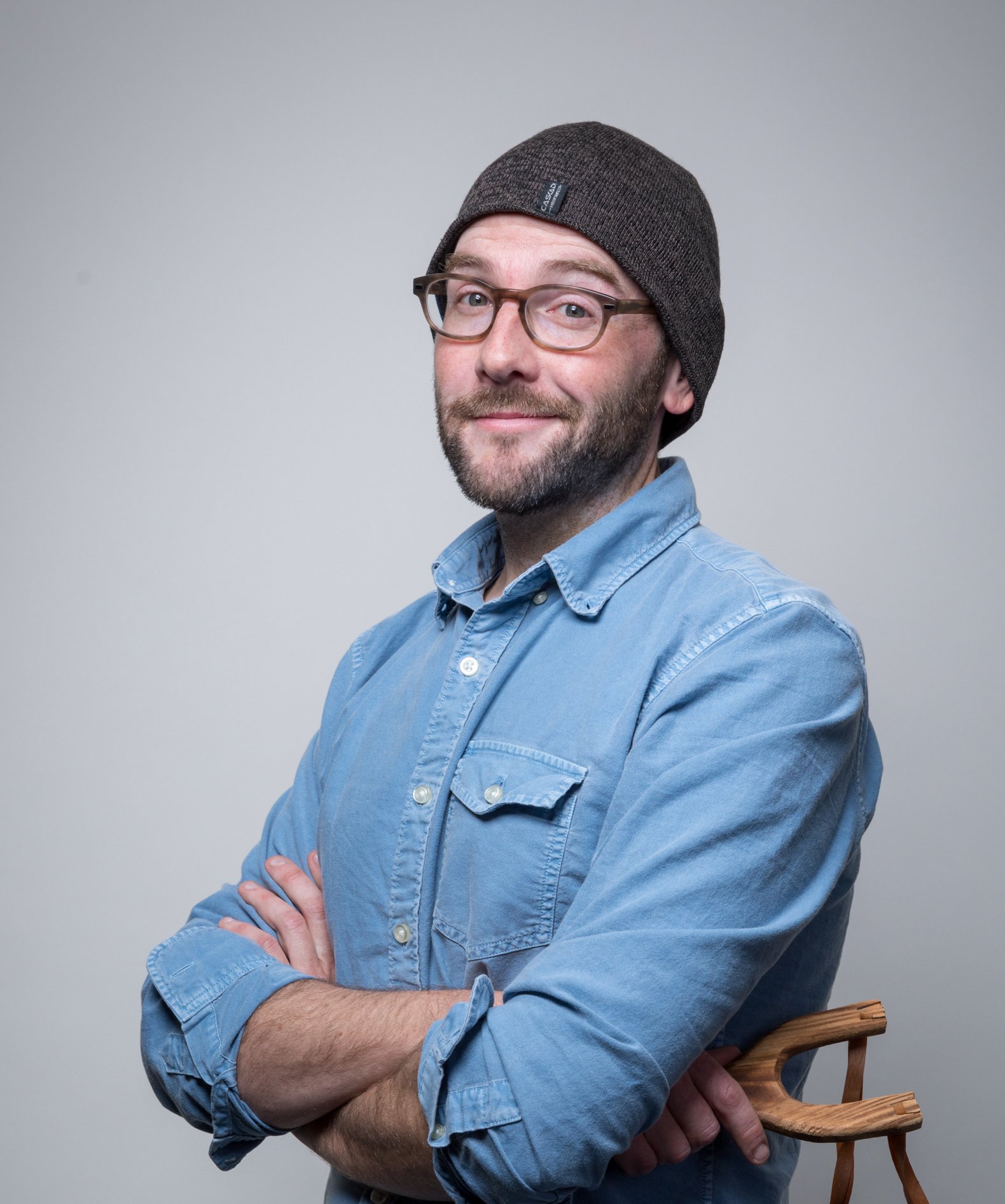
Gordon Douglas
Gordon Douglas is an associate professor of urban and regional planning at San José State University, where he also directs the Institute for Metropolitan Studies. Gordon’s research, teaching, and community work focus on questions of access, equity, and local cultural identity in urban planning and design. He is the author of The Help-Yourself City: Legitimacy and Inequality in DIY Urbanism, and his writing and photography have been published in City and Community, Urban Studies, Journal of Urban Design and other journals, magazines, newspapers, and blogs. His research has also appeared in the Washington Post, Los Angeles Times, Fast Company, National Post (Toronto), La Presse (Montreal), and multiple Bay Area news outlets. Born in London and raised in Northern California, Gordon received his doctorate in sociology from the University of Chicago and also holds degrees from the University of Southern California and the London School of Economics.
-

Hannah Drake
Hannah Drake (she/her) is a blogger, activist, public speaker, poet, author of 11 books, and the Chief Creative Officer at IDEAS xLab. She writes commentary on politics, feminism, and race and her work has been featured in Cosmopolitan Magazine. Her work has been recognized by Colin Kaepernick, Ava DuVernay and The New York Times, and she was selected as a Muhammad Ali Daughter of Greatness.
-

Lisa Eckenweiler
Lisa Eckenwiler, Ph.D., is Professor and Chair of the Department of Philosophy, George Mason University, where she teaches bioethics and global health ethics. Current projects focus on the ethical closure of humanitarian projects and a new theoretical framework for humanitarian health ethics. She is at work on a book tentatively entitled Placemaking for Health Justice, with Routledge, in addition to an edited collection, Forced Migration and Health Justice, with Oxford University Press. Her previous books include Long-term Care, Globalization and Justice: Migrant Care Workers, Aging, and Families (Johns Hopkins University Press, 2012) and The Ethics of Bioethics: Mapping the Moral Landscape, co edited with Felicia Cohn (Johns Hopkins University Press, 2007). Lisa is Vice President of the International Association of Bioethics, ellow of the Hastings Center, co-founder and current chair of the Resisting Borders/Migrant Health and Ethics Network (within the International Association of Bioethics); a founding member of the Independent Resource Group for Global Health Justice; and a member of the Humanitarian Health Ethics Network. She is a Collaborator with the Ethics and Health research axis at le Centre de Recherche en Éthique at the University of Montréal.
-

Theo Edmonds
Theo Edmonds, a prolific Culture Futurist™, merges three decades of leadership in diverse sectors with a passion for cultural wellbeing and transformational creativity. A nontraditional “pracademic” and scholar operating at the confluence of creative industries, brain science, and the future of work and wonder, Theo’s journey embodies a relentless pursuit of bringing arts, science, and business into alignment in order to harmonize the human potential of organizations. As an analyst, Theo skillfully identifies cultural opportunities to evolve and deepen impact agendas. As an entrepreneur, Theo believes in the power of imagination and storytelling to drive large-scale change. As a catalyst, Theo has co-created novel methods for measuring and visualizing critical skill sets, like creativity and social wellbeing, that help organizations thrive through change.
A nine-generation Appalachian, recognized artist, poet, and researcher, Theo co-founded IDEAS xLab with husband, Josh Miller. Today, Theo stands ready to launch the most ambitious project of their career: Creativity America, an initiative that brings together arts and science with business to boost America’s creativity skills by 25% within the next decade.
Learn more about Theo Edmonds at www.theoedmonds.com.
-

Rezvaneh Erfani
Rezvaneh Erfani is a SSHRC Canada Vanier Scholar, Killam Scholar and a PhD candidate in the Department of Sociology, University of Alberta, Canada. She is also a visiting student in the Department of Political Science and International Relations at the Boğaziçi University, Turkey. Her research interests include environmental justice and activism, postcolonial theory, ecofeminism, gender and politics in the Middle East.
-
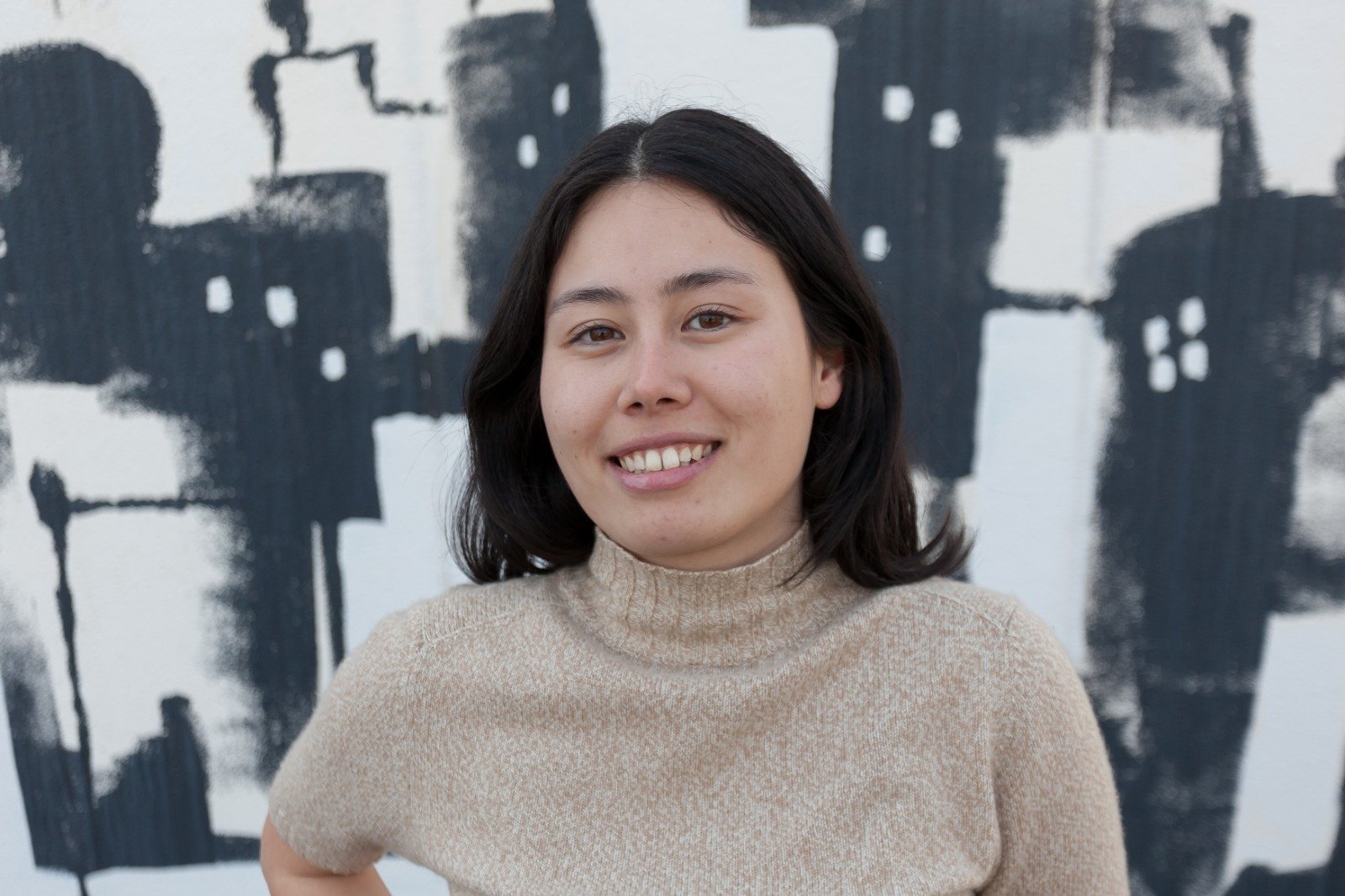
Moéna Fujimoto-Verdier
Moéna Verdier-Fujimoto is bi-cultural French/Japanese, growing up in France, and with Masters in Tourism, Culture and Society from Erasmus University of Rotterdam. With her interdisciplinary background and as a freelancer, she combines experiences in various domains (cultural, media and business). She is currently working for Yuzu Kyodai, a brand consultancy company based in Tokyo, with the ambition to bridge cultural gaps between Europe and Japan.
-

Pablo Gershanik
Pablo is an actor, director, theatre pedagogue, and an Argentinian Mexican living in France. Graduating from the Ecole Internationale de Théâtre Jacques Lecoq, Pablo is Director of the Diploma in Performance and Interpretation with Masks and professor of the Bachelor of Performing Arts at the National University of San Martín, Argentina, Masters student, Dramatherapy at the University of Paris, actor in Cirque Eloize, Compagnie Philippe Genty, Compagnia Finzi Pasca, artist, Cent Quatre Paris and the Cité Internationale des Arts, Paris, and creator of the Intimate Model Laboratory.
-
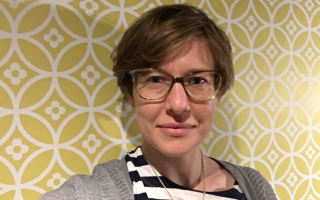
Rebecca Gordon
Dr Rebecca A. Gordon is a researcher, lecturer, and writer in modern and contemporary art, specialising in the history and theory of contemporary art conservation. She has taught in the History of Art Departments at University College London and University of Glasgow, and has guest lectured at University of Amsterdam and New York University. Her current research focusses on collective care and emotional labour of social practice artists, the ethics of posthumanist care for museum futures, and the conservation of contemporary art as a counter-extinction activity. Rebecca works as a freelancer and is based in Glasgow, Scotland.
-

Jean Greene
Jean Greene is the co-director of the Utica Institute Museum and co-project director for the IMLS Museum Grant for African American History & Culture Utica Roots: Building Community Through Shared Oral Histories. She served as director of the William H. Holtzclaw Library and Archives at Hinds Community College-Utica Campus from 2000 until her retirement in 2020. She was co-director of a National Endowment for the Humanities grant William Holtzclaw & the Black Man’s Burden, a two-year research project to create a humanities course taught across disciplines to give students a broader understanding of William H. Holtzclaw and his pioneering efforts in African American education in rural Mississippi.
-

Julie Goodman
Julie Goodman is the Department Head for Arts Enterprise, joined Drexel University in the fall of 2011, and served as the graduate arts administration program’s director from 2012-17. She was previously Executive Vice President for the Greater Philadelphia Cultural Alliance, where for twelve years she led advocacy, field research, community engagement, and grant making efforts. She also works on consulting projects with arts organizations and artists and is a board member of the Association of Arts Administration Educators (AAAE), Citizens for the Arts in Pennsylvania, Tribe of Fools, and the Stockton Rush Bartol Foundation. She currently serves as Chair of the Mayor’s Cultural Advisory Council for the Philadelphia Office of Arts, Culture, and the Creative Economy. Her research examines the strategies and impact of individual artists, cultural organizations, and communities. Recent publications include articles in Journal of Arts Management, Law and Society, American Journal of Arts Management, and Metropolitics.
-

Juan David Guevara-Salamanca
Juan is a political scientist from Universidad del Rosario, Colombia, with an Interdisciplinary Master of Science from the University of Alberta, Canada. He has experience in social research, communitarian work and the private and public sectors. His research interests intersect socioeconomic development, participatory democracy, the social production of spaces, human geography and the socio-political Colombian armed conflict. He is currently working on his doctoral dissertation that aims to understand the socio-material culture of urban informality through the mobilities and rhythms of stairs, pathways, materials and informal transportation.
-

Sophie Hope
Sophie Hope is a senior lecturer and practice-based researcher at Birkbeck, University of London. Her work is often developed with others through the format of devised workshops exploring subjects such as art and politics in the year 1984, physical and emotional experiences of work and histories and politics of cultural democracy and socially engaged art. Current projects include: Manual Labours with Jenny Richards, Meanwhile in an Abandoned Warehouse with Owen Kelly, 1984 Dinners and Cards on the Table.
-

Michal Huss
Dr Michal Huss is a Postdoctoral Fellow, The Minerva Center for Human Rights, where her research deals with the analysis of public planning and construction struggles in Jaffa and Tel Aviv. Her ESRC-sponsored doctoral in the Architecture Department at the University of Cambridge focused on the urban resistance and activism of displaced populations within transcultural landscapes. She has set up numerous workshops on radical cartography in and around gentrifying spaces and migration detention centres.
-

Theresa Hyuna Hwang
Theresa Hyuna Hwang (she/her) is a community-engaged architect, educator, and facilitator and founder of Department of Beloved Places. She has spent over 15 years supporting equitable cultural community development across the US with multiple organizations and campaigns. She received her Master of Architecture from Harvard Graduate School of Design (2007) and a Bachelor of Science in Civil Engineering from the Johns Hopkins University (2001). She is a licensed architect in California.
-

Gina Jimenez
Gina Jiménez is a researcher from Colombia with a Master's degree in development management and a Bachelor's in social sciences. She works as a social professional in the Land Restitution Unit. Her professional and academic experience has focused on formulating, executing, monitoring and evaluating programs and projects that seek to benefit vulnerable communities and peasant communities victims of the armed conflict in Colombia.
-

Molly Rose Kaufman
Molly Rose Kaufman is a Co-Founder and Co-Director of the University of Orange, a free school of restoration urbanism in Orange, NJ, that builds collective capacity for friends, neighbors, and partners to cultivate a just and equitable city. Molly co-founded the organization in 2008 alongside family members, local activists and community leaders. She serves as a member of the board of the Jersey City Public Library and as Chair of the Board of the World Fellowship Center. She teaches place-based organizing and popular education at the Eugene Lang College of the New School University.
-

Wilfred Keeble
Wilfred Keeble is a full-blooded Dakota Sioux native from the Crow Creek Agency in South Dakota, grounded in the traditions, culture and spirituality he was raised in. He has an extensive background in farming and ranching. He is well known throughout Indian Country as a strong advocate for all Native American Treaty Rights. He experienced the Bureau of Indian Affairs boarding school system, and later went on to earn his college degree in Business Management. He served as Tribal Chairperson for Crow Creek Agency. He has been part of the Dakota 38 + 2 Wokiksuye Horse Ride for 17 years, serving as Staff Carrier for the last eight years, providing leadership for the families and horses on the ride. He has a passion for educating youth and building the future horse nation, supporting rides throughout Indian Country to honor the ancestors, warriors and historically significant sites throughout the year.
-

Angela Kennedy
Angela was senior professional, leader and innovator in NHS mental health services for some decades after qualifying as a Clinical Psychologist in 1994. She has been at the forefront of trauma-informed and compassionate leadership developments and set up a UK wide network for change. She delivers programmes of wellbeing change oriented work and embeds co-production and lived experience in all that she does. She has been on the board of Trauma charities and set up a regional staff support service during covid, which commissioned lots of creative or collective healing opportunities. As part of that suicide prevention research, a documentary film Life Well Lived illustrated the stories of healthcare staff who survived attempts to end their lives. Angela is a feminist visual artist and delivers arts-for-wellbeing events.
-

Joongsub Kim
Joongsub Kim, PhD, RA, AIA, AICP, is a professor at Lawrence Technological University, Michigan, and directs its architecture college’s urban design program and Detroit Studio. A city planning and science in architecture studies MIT masters graduate and PhD from University of Michigan, he engages in applied research studies and projects in socially responsive design, urban design, community development, and environmental psychology. He served as a reviewer for grant competitions for the Social Sciences and Humanities Research Council of Canada and Kresge Foundation Innovative Projects. He has received numerous grants and other awards from National Endowment for the Arts, National Science Foundation, American Institute of Architects, Boston Society of Architects, National Council of Architectural Registration Boards, Association of Collegiate Schools of Architecture, Kellogg Foundation, and Graham Foundation. His work has been published in journals including Journal of Urban Design, Urban Design International, The PLAN Journal, Places Journal, Environment & Behavior, Local Development and Society, International Journal of Community Well-Being, and Architectural Record. His book What Do Design Reviewers Really Do? was published by Springer Press.
-

Erica Kohl-Arenas
Erica Kohl-Arenas is an Associate Professor in American Studies at the University of California, Davis and the Faculty Director of Imagining America: Artists and Scholars in Public Life. She is a scholar of social movements, freedom struggles, and the politics of institutionalization, professionalization, and private philanthropy. Kohl-Arenas’ research has focused primarily on the radical imaginations and deferred dreams of social movements that become entangled with the politics of institutionalization and funding. This work is captured in her book The Self-Help Myth: How Philanthropy Fails to Alleviate Poverty (University of California Press, 2016) and in a diversity of publications including Antipode: A Radical Journal of Geography, Social Movement Studies, Journal of Poverty, Geography Compass, Public: A Journal of Imagining America, chapters in books with international scholars of philanthropy and poverty studies, and public scholarship platforms including HistPhil and Transformation (at Open Democracy).
-
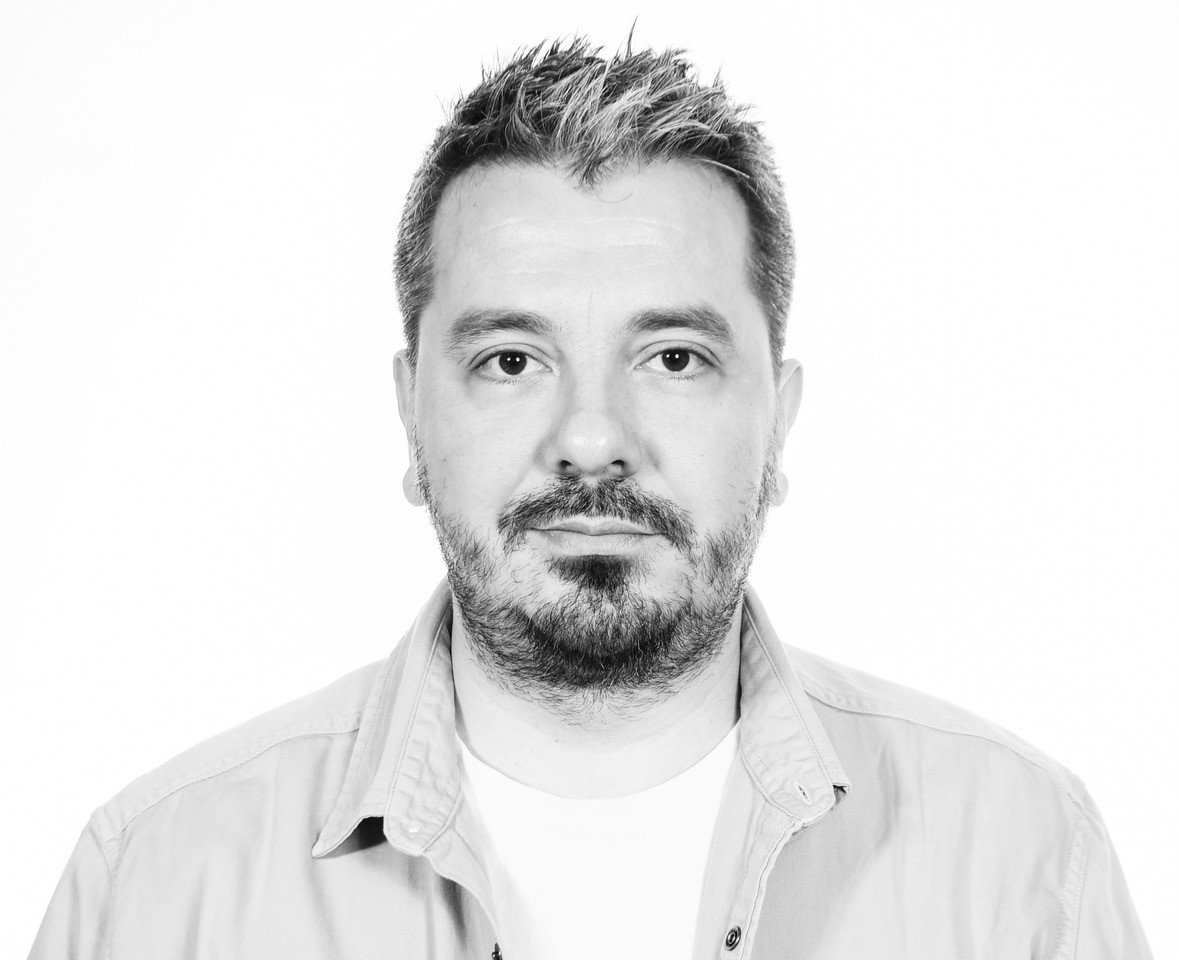
Korab Krasniqi
Korab Krasniqi is a researcher, civil society, and memory activist, focused on dealing with the past, transitional justice, and memorialization. He is completing an MA in Political Sciences at the University of Prishtina, with a bachelor’s degree in psychology. Korab has attended the fellowship program at Columbia University, NYC, on Historical Dialogue and Accountability and was part of numerous dealing with the past educational programs, locally and internationally. For the past 9 years, Korab has been working with forumZFD, an international organization working on Peace Education and Dealing with the Past. Korab explores photography and art as a medium to foster a broader conversation on memory and the difficult past.
-
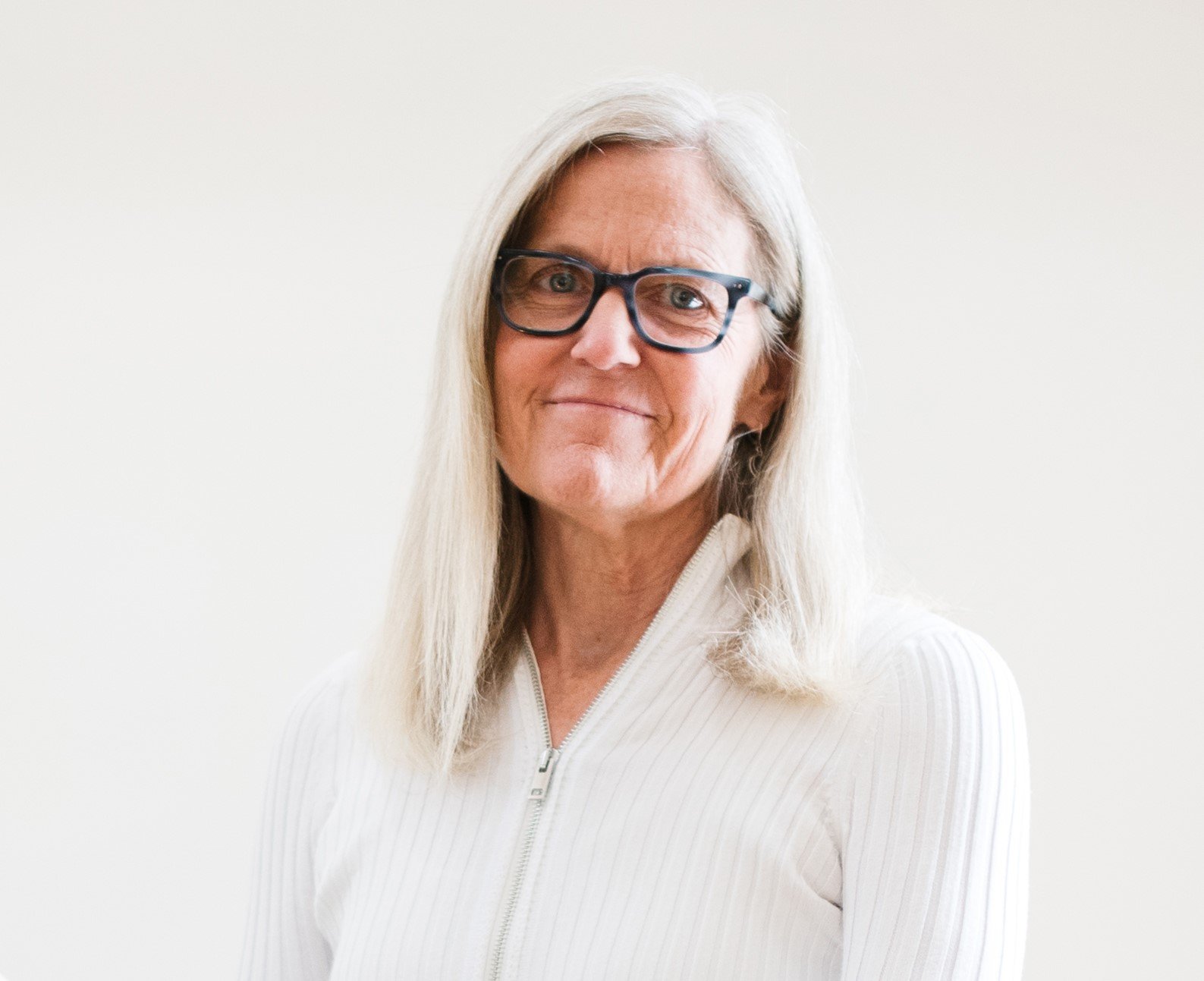
Teri Kwant
Teri Kwant, experience design consultant, designer, and public artist, founded and leads DreamLab, a human-centered experience design collaborative, with clients across healthcare to corporate to community-based experiences. She has designed public engagement at the scale of cities to inform urban design and has created placemaking and public art projects at the intimate scale of human interaction. Teri has led award winning design teams for the Sandy Hook memorial, a children’s hospice, and an eco-retreat and wellbeing center for BIPOC and LGBTQ communities. Teri has been a professional lecturer in the design of experience, environments and communications at the University of Minnesota School of Design, and currently teaches Human Centered Design for Well-Being with a trauma informed, social justice lens as an architectural studio.
-

Sally Labern
Dr Sally Labern is a multi-disciplinary artist whose collaborative practice includes the work she directs and facilitates with the drawing shed, a social practice artist-led organisation hosted by communities of two linked social housing estates in east London UK. Sally's practice led PhD (UEL 2021) looked at the radical imagination and foregrounding of co-authored practices through the lens of works made with others in Istanbul, Republic of North Macedonia, Charlottesville US, and across the UK.
-

Friederike Landau-Donnelly
Dr Friederike Landau-Donnelly is a political theorist, urban sociologist and cultural geographer interested in intersections between politics and space. In her dissertation Agonistic Articulations in the ’Creative‘ City – On New Actors and Activism in Berlin’s Urban Cultural Politics (Routledge, 2019), Friederike conceptualized different modalities of political organization and representation amongst Berlin-based independent artists and cultural workers. In addition, she co-edited [Un]Grounding – Post-Foundational Geographies (transcript, 2021), which discusses ontologies of space through a lens of conflict and contingency.
-

Iliana Lang Lundgren
Iliana Lang Lundgren is a graduate student research assistant at the University of Oregon’s Just Futures Institute. She holds a master’s degree in Nonprofit Management from the University of Oregon and a Bachelor of Science from Georgetown University in Environmental Biology. She is committed to increasing the impact of nonprofit organizations in the fields of environmental justice, reproductive health, and gender equality.
-

Brian Jay De Lima Ambulo
Brian Jay de Lima Ambulo is currently a PhD student in Culture Studies, The Lisbon Consortium, Catholic University of Portugal. He is an award-winning researcher and operations officer who worked for the Philippine Department of Trade and Industry, managing portfolios on startups and the creative and cultural industries, and drafting cultural policy recommendations. He is also an Artist Fellow of Singapore International Foundation’s Arts for Good Fellowship. He received his BA in History and Political Science from the University of the Philippines (2012); and his International Master’s in Dance Knowledge, Practice, and Heritage from Norway, France, Hungary, and the UK (2016) through the Erasmus+ programme. His PhD dissertation, The Future is Culture: Imaging, Managing, and Imagining Creative Placemaking in Post-Disaster Recovery, continuously navigates the intersections of creativities, cultures, grassroots, governance, development, and policymaking.
-

Justine Lloyd
Justine Lloyd is a cultural sociologist in the Discipline of Sociology at Macquarie University. Her research focuses on the relationship between spatial and social change, particularly investigated through cultural histories of media and urban space. She has also published in the area of transnationalism and border theory.
-

Ryan Lugalia-Hollon
Ryan serves as the CEO for UP Partnership, an education and youth development backbone that seeks to ensure all young people in San Antonio are ready for their future. He has previously served as an executive director for Excel Beyond the Bell San Antonio and the YMCA of Metropolitan Chicago’s Youth Safe and Violence Prevention department. Ryan’s book, The War on Neighborhoods, was published by Beacon Press and tracks the devastating impact of mass incarceration on one Chicago community area. He is an active leader in the national StriveTogether network and serves as the Board Chair for the Children’s Funding Project.
-
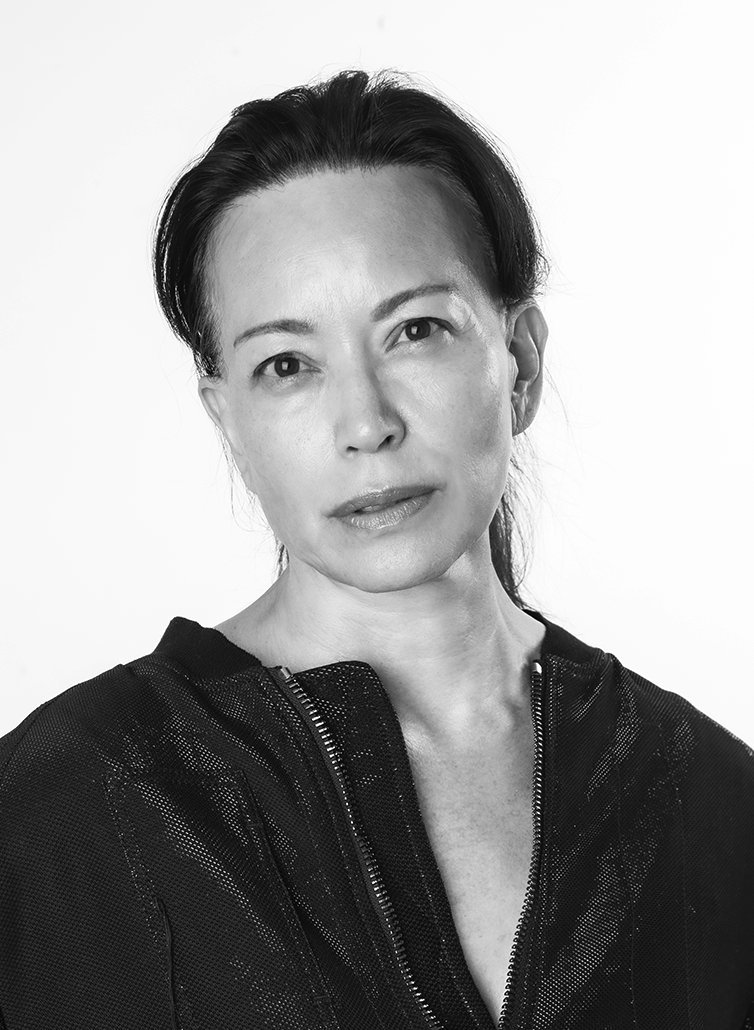
Anna Marazuela Kim
Dr Anna Marazuela Kim is an international consultant for culture with over a decade of experience in ground-breaking institutes of advanced of study and transdisciplinary research groups in the UK, US and Europe, leading projects, publications, and critical debate at the intersection of culture, conflict, urban futures and human thriving. Since 2013, she has been an Associate Fellow, Thriving Cities Project and Lab, University of Virginia and is currently member of a new Research Centre in Creative Arts, Cultures and Engagement at London Metropolitan University. Dr Kim brings academic expertise to broader publics and practice and writes for a wide variety of platforms, from NATO to Frieze and is often tapped as a keynote to speak on topics of urgent contemporary concern, from the public role of museums in the wake of humanitarian crisis, to iconoclasm and the culture wars, and is currently speaking on culture as a human right.
-

Annaclaudia Martini
Annaclaudia Martini is Assistant Professor in Human Geography at the University of Bologna, Italy. She obtained her PhD in human geography from the University of Groningen, The Netherlands. Her research focuses on the coastal communities in Tohoku, Japan, hit by the 2011 earthquake, tsunami, and nuclear meltdown at the Fukushima nuclear power plant. She developed a keen interest and commitment in methods and frameworks for social participation, academic outreach and engagement outside academia.
-

Ayako Maruyama
Ayako Maruyama is a Filipina-Japanese designer, educator and illustrator, and Professor in the Industrial Design department at Rhode Island School of Design. She has co-created numerous public engagement strategies often around transportation, housing and community development and co-authored and co-illustrated, Ideas Arrangements Effects: Systems Design and Social Justice. Ayako has taught Sense of Place at Boston University's City Planning and Urban Affairs program since 2013, and the Experience of Public Engagement studio at RISD, and with the community at University of Orange as a Urbanist in Residence and in the Collective Recovery Team.
-

Mina Matlon
Mina Para Matlon is an arts organizer, researcher, attorney, artist, and cultural equity advocate. Her research and organizing interests lie in the intersecting areas between arts and community development, with her practice particularly focused on community memory, identity, and imagination, Black and Indigenous self-determination, and the protection and leveraging of traditional and Indigenous knowledge and cultural assets. This work weaves together more than twenty years in the cultural sector and has included positions within higher education, corporate law, domestic and international legal aid and policy organizations, and small to large arts, media, and cultural institutions and collectives. Matlon holds a J.D. from Harvard Law School and an MA in Arts Administration and Policy from the School of the Art Institute of Chicago. She is a Robert Wood Johnson Foundation Interdisciplinary Research Leaders Fellow.
-

Lynne McCabe
Lynne McCabe is a multi-disciplinary socially engaged artist engaged in the vocabulary of relational aesthetics, feminist and durational performance practices, philosophy, and pedagogical theory. A recent recipient of The Hogg Foundation for Mental Health award, and research grant from The Texas Higher Education Coordinating Board’s Minority Health Research and Education Program, McCabe has held a residency at The Cynthia Woods Mitchell Center for the Arts and a was awarded the Artadia Houston award in 2008. McCabe has exhibited nationally and internationally, most notably as part of the 53rd Venice Biennale. Her writings have been included in several collections, including SFMOMA’s Open Space, 2010 and Becoming Love, More Love: Art, Politics, and Sharing since the 1990s, Ackland Art Museum, North Carolina, 2013.
-
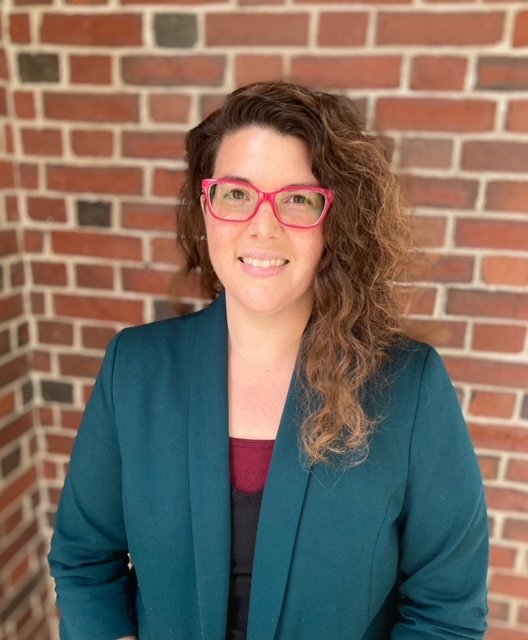
Jacque Micieli-Voustinas
It all begins with an idea. Maybe you want to launch a business. Maybe you want to turn a hobby into something more. Or maybe you have a creative project to share with the world. Whatever it is, the way you tell your story online can make all the difference.
-

Josh Miller
Josh Miller, MBA (he/him) is the co-founder + CEO of IDEAS xLab, and owner of Josh Miller Ventures. He is a queer artist, explorer, international public speaker and entrepreneur whose work has been featured by The New York Times, and who was selected as a Nonprofit Visionary Leader in 2022 by Louisville Business First and for Business Equality Magazine’s Forty LGBTQ+ Leaders under 40 in 2020.
-

Ellen Pearlman
Dr Ellen Pearlman is a new media artist, curator, critic and educator. A Fulbright Scholar and Fulbright Specialist in Art, New Media and Technology she is a Research Fellow at MIT. She is also a Senior Research Assistant Professor at RISEBA University in Riga, Latvia. She created Noor, an interactive immersive brainwave opera in a 360 degree theater and AIBO, an emotionally intelligent artificial intelligent brainwave opera. She is also Director and Founder of ThoughtWorks Arts a global technology research lab.
-

Lyubomira Peycheva
Lyubomira graduated with a MSc degree in Environmental Science from Trinity College, Dublin and a BA in Geography and Chinese (Mandarin) language from Dublin City University. Her interests range from environmental, social, and corporate governance, sustainability strategy, and consultancy to urban planning and the implementation of a holistic way of life for nature and society, where nature is present in everyday life. Her interest shows through her Master's thesis research, Abandoned landscapes as places of potential for Nature Therapy: Glendalough, Ireland, where she explores the inherent connection between people and nature and the effects of this connection on mental health.
-

Elena Quintara
Elena Quintana, Ph.D. is a Clinical and Community Psychologist who has dedicated her professional life to supporting healing where it is critically needed. Elena has worked nationally and internationally to inventively contribute to the fields of violence prevention, justice reform, and trauma-responsivity. She focusses on creating healing spaces in systems and communities and dedicates herself to expanding restorative justice alternatives to detention, promoting healing and education for incarcerated people, and promoting healing opportunities between people who have been harmed and those who have harmed them. Elena Quintana is the Executive Director of the Institute on Public Safety and Social Justice at Adler University.
-

Aisling Rusk
Dr Aisling Shannon Rusk, architect and Director of Belfast-based Studio idir. Aisling’s research explores the practices of locating ‘in-between’: pushing the boundaries of architectural practice to explore other ways of knowing and practicing in the leftover space of the margins. She tutors part time at Queen’s University Belfast and is the founding chair of RSUA's Women in Architecture group, supporting and promoting women architects in Northern Ireland. In 2020, Aisling was named one of the Architect's Journal's 40 Architects under 40, a celebration of the UK's most exciting emerging architectural talent.
-
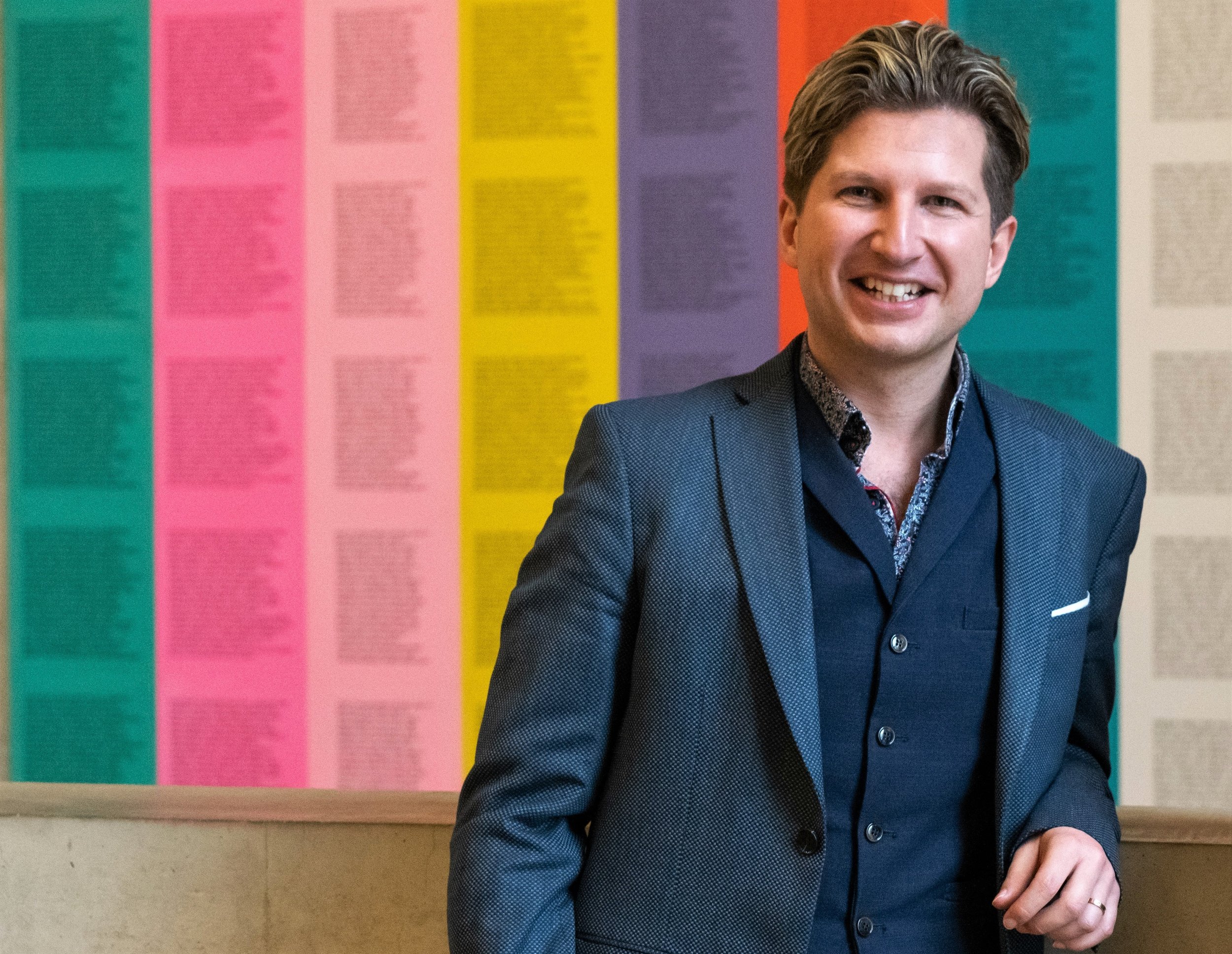
Jacek Ludwig Scarso
Dr Jacek Ludwig Scarso is Reader in Art and Performance at the School of Art, Architecture and Design, London Metropolitan University. He is a University Teaching Fellow and Course Leader on the Public Art and Performance MA. He is Deputy Director of CREATURE, The Centre for Creative Arts, Culture and Engagement. Jacek is Trustee of The Line, London's first dedicated Public Art Walk, and Senior Advisor in Public Space for City Space Architecture. He is also Curator at Fondazione Marta Czok in Rome and Venice.
-

Jason Schupbach
Jason Schupbach is the Dean of the Westphal College of Media Arts and Design at Drexel University. He was formerly the Director of the Design School at Arizona State University. In this position, he started the ambitious ReDesign.School project to reinvent design education for the 21st century and is a key advisor to ASU on diverse projects such as the Center for Creativity and place, Roden Crater, the Creative Futures Lab, and ASU's Los Angeles downtown home. Previous to this position he was Director of Design and Creative Placemaking Programs for the National Endowment for the Arts, where he oversaw all design and creative placemaking grantmaking and partnerships, including Our Town and Design Art Works grants, the Mayor’s Institute on City Design, the Citizens’ Institute on Rural Design, and the NEA's Federal agency collaborations. He has written extensively on the role of arts and design in making better communities, and his writing has been featured as a Best Idea of the Day by the Aspen Institute.
-

Rita Sinorita Ferro
Dr Fierro has spent almost three decades studying systemic racism and draws upon her experiences as a trauma survivor, activist, artist and researcher to transform herself and our world. She founded Fierro Consulting in 2008, a firm that supports organizations to improve their external impact by having a more cohesive, creative, and equitable internal culture; and the Home for Good Coalition; and the Collective Power Podcast. Her PhD in African American studies, and 20+ years of listening to parents who lost custody of their children in Philadelphia is rendered in her unpublished manuscript, In the Lion's Mouth: How the USA System Kidnaps Children. Her latest book, Digging up the Seeds of white Supremacy exposes the historical racist mechanisms embedded in our systems and shines a light on how we can transform the culture of fear at its foundation.
-

Cathy Smith
Cathy Smith is an Australian architect, interior designer, and Senior Lecturer in Interior Architecture at UNSW where she has also been the inaugural Turnbull Foundation Women in Built Environment scholar. She was a Richard Rogers Fellow (Harvard University GSD, Fall 2018) and Visiting Professor at Carleton University (Winter 2019, 2020). Both her design practice and interdisciplinary scholarly research concentrates on issues of social equity, property tenure, placemaking and urban renewal, focusing particularly on the DIY procurement methodology of meanwhile interiors and architecture, and has been published in a mixture of industry and scholarly journals.
-

Mindy Thompson Fullilove
Mindy Thompson Fullilove, MD, is a professor of urban space and health at The New School in New York City. She has studied the psychology of place for many years and written the highly regarded urban restoration trilogy, Root Shock, Urban Alchemy and Main Street.
-
Karen E Till
Karen E. Till is an interdisciplinary feminist researcher, curator, creative writer and activist; Professor of Cultural Geography; Council Member of the Royal Irish Academy; and Co-convener of the Feminist Counter-Topographies reading group. She regularly partners with community groups, artists and activists to advance practices of place-based memory-work and an ethics of care in cities wounded by the legacies of state-perpetrated violence, including in Berlin, Cape Town, Dublin and Minneapolis. Most recently, Karen was awarded an Irish Research Council New Foundations grant, with Pavee Point and TravAct. Karen is author of The New Berlin: Memory, Politics, Place, numerous edited volumes, scholarly articles and creative essays. She is author of the forthcoming book, Wounded Cities, and co-editor, Earth Writings, Cork University Press. Karen is also Director of the Space&Place Research collaborative and co-convener of the international network Mapping Spectral Traces.
-

Samira Torabi
Samira Torabi is a PhD student in the Anthropology Department at University of Alberta. In her MA research she has examined the intersection of space, place, and gender. For her PhD project, she is looking at how certain sexual expressions and everyday life politics in the Middle-East are challenging the dichotomies of modern discourse.
-

Carlton Turner
Carlton Turner is an artist, agriculturalist, researcher, and co-founder of the Mississippi Center for Cultural Production (Sipp Culture). He currently serves on the board of First People’s Fund, Imagining America, Project South and the National Black Food and Justice Alliance. Carlton is a member of the We Shall Overcome Fund Advisory Committee at the Highlander Center for Research and Education and is the former Executive Director of Alternate ROOTS and is a founding partner of the Intercultural Leadership Institute.
-

Josephine Vaughan
Dr Josephine Vaughan is a lecturer in Construction Management at the University of Newcastle, Australia. With a background that includes architecture and design, Josephine has been involved in community-based urban redesign and place activation projects over the last decade, Josephine is a member of a NSW Government collaborative project to develop a toolkit for determining the value of creative placemaking. Continuing her interest in the relationship of the natural environment with constructed landscapes and buildings, Josephine researches, lectures and supervises students in the areas of placemaking, environment and community.
-
Laura Van Vleet
Laura Van Vleet is a recently retired Middle School Physical and Earth Science teacher. Her focus in recent years, following a sabbatical study of local geology has been to teach principles of geology using a local perspective and place based model. Prior to teaching in a public school setting, she worked for Cooperative Extension, bringing educational and occupational opportunities to young people, living in at-risk communities. She has her Bachelor's Degree from Cornell University in Ecology Systematics and a Masters of Science from Elmira College in 7-12 Biology Education. She is now an organic farmer in Lodi, New York and operates a farm stand with her husband and family. She has developed an interest in Korean dramas and was part of the University of Orange 2021 TV club.
-
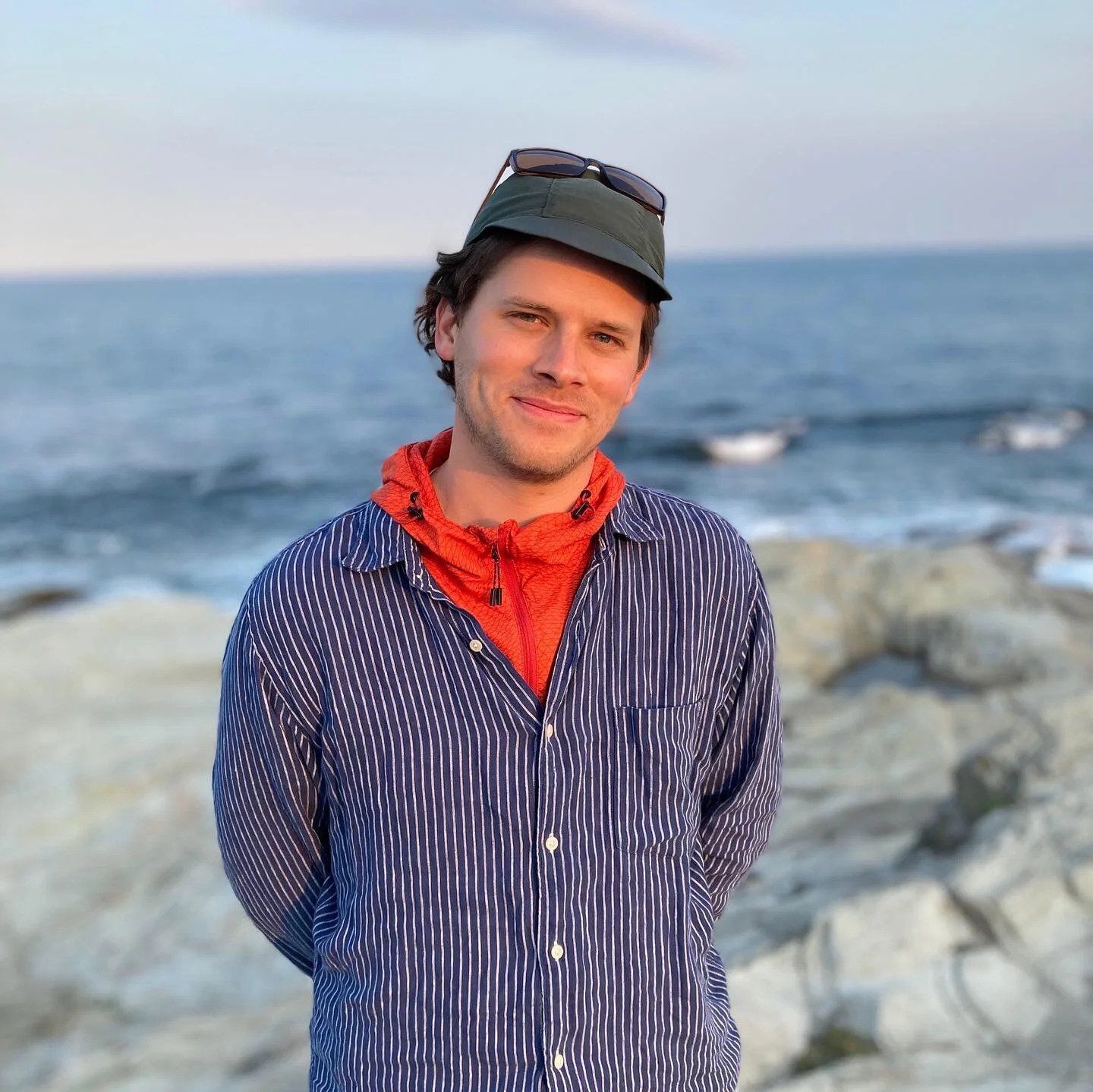
Liam Van Vleet
Liam Van Vleet is a designer and builder based in Providence, Rhode Island working on objects, spaces, and experiences. Alongside work that has spanned product development, user interface and exhibit design, he has also been involved in organizing Feast Mass Boston, ventilatorproject.org, and Design by Rhode Island’s design resiliency challenge.
-

Alexander Vojvoda
Alexander Vojvoda is community media activist and sociologist. He holds a MSc in Sociology and a MA in Political Communications and worked in the area of community media, community building and conflict-sensitive journalism in Austria, Germany, Cameroon and Kosovo. Currently, he is working with forumZFD Kosovo and is project lead of the Landscapes of Repair project (www.landscapesofrepair.org) focusing on public space, violence and trauma.
-

Chuck Wolfe
Charles R. (Chuck) Wolfe is founder and principal advisor of Seeing Better Cities Group, has practiced at several law firms, and has served as a long-time affiliate associate professor in the College of the Built Environments at the University of Washington in Seattle. He has been a frequent radio and podcast guest, and written regularly for many publications, including The Atlantic, The Atlantic Cities/CityLab, Governing, CityMetric, Planetizen, The Huffington Post, Grist, and Crosscut. He blogs at sustainingplace.com and has authored Seeing the Better City (2017) (finalist for a 2018 UK National Urban Design Award) and Urbanism Without Effort (rev. ed. 2019), both from Island Press.
-

Marwa Zohdy Hassan
Marwa Zohdy is a researcher, archivist, and storyteller, and BA English Literature, Linguistics, and Translation from Ain Shams University, Cairo. Dedicated to trauma theory study in an attempt to capture an inclusive, therapeutic understanding of life and the human experience, Marwa’s research interests include sci-fi theory, performance theory, memory studies, and anthropocentrism and posthumanism in a post-pandemic world. Previously, Marwa worked at SARD: Shubra’s Archive for Research and Development, Cairo, mapping residents oral narratives.

